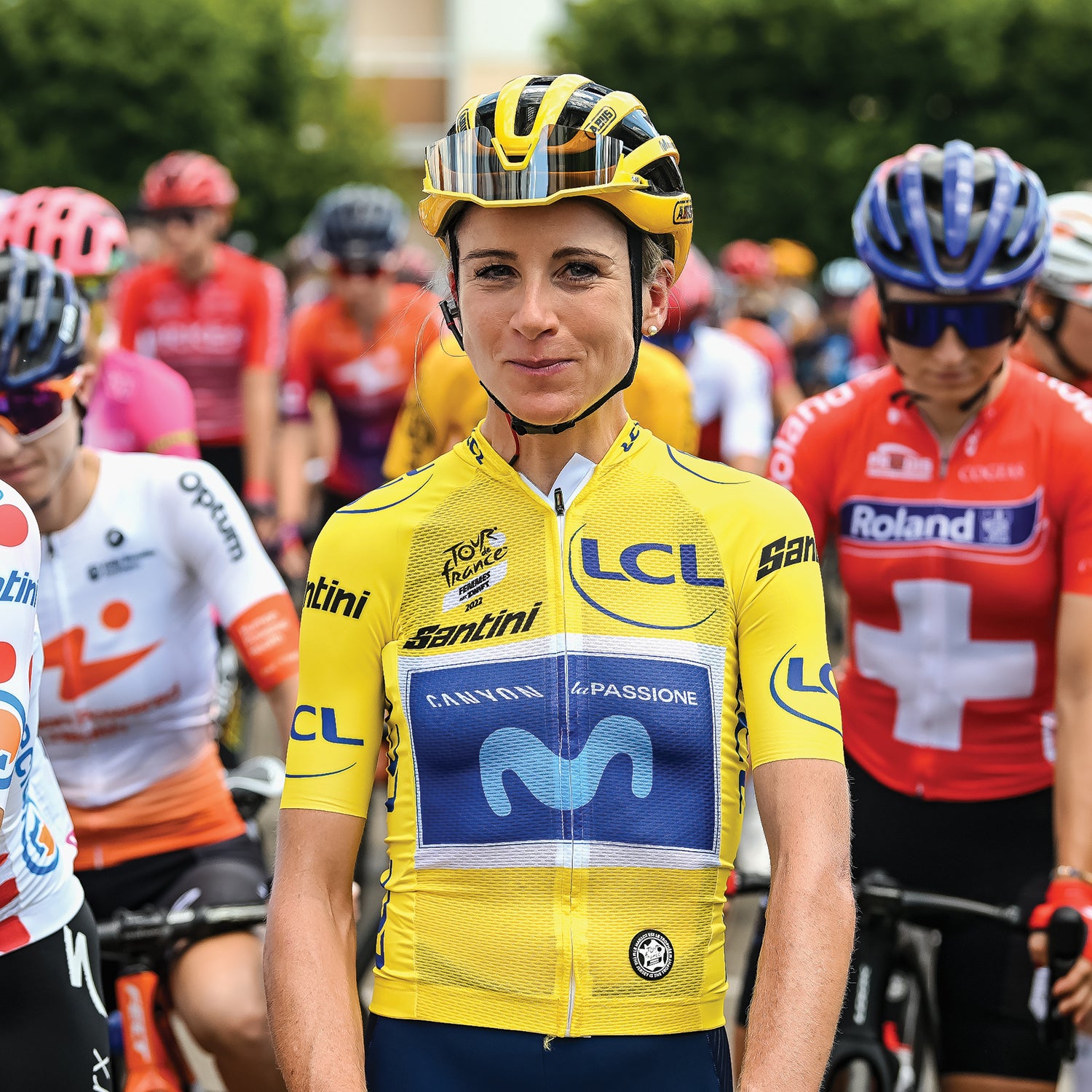Dutch cyclist was already a towering figure in professional cycling prior to last summer’s inaugural Tour de France Femmes. Van Vleuten, 40, has three world titles, and she’s won nearly every major race on the women’s circuit. Her gold-medal ride in the individual time trial at the Tokyo Olympics took place just days after she’d taken silver in the road race, making her the only cyclist in more than a decade to medal in both road-cycling events at the same Games.
Yet on July 23, Van Vleuten could not contain her emotion after crossing the finish line atop the Super Planche des Belles Filles climb in eastern France to clinch her overall victory at the Tour de France Femmes.
“This is actually a dream that came true, winning in yellow on the top,” Van Vleuten said, fighting back tears. “Finishing here, in yellow, solo, is the best way.”
Van Vleuten’s elation spoke to the importance that the Tour de France Femmes now holds within women’s cycling following its debut. The eight-day race kicked off on the Champs-Élysées on July 24, just as the men’s race held its final stage on the same streets. French TV reported 2.3 million viewers per day, with a peak of 5.1 million tuning in for the final stage. Those statistics made the Tour de France Femmes the most viewed women’s cycling race of the year by a wide margin.
Those figures also erased the decades-old idea that women’s cycling couldn’t generate enough interest to support its own Tour. There have been multiple attempts at creating a marquee women’s stage to run in conjunction with the men’s race, which held its 109th edition in 2022, but none of the projects overcame the financial challenges and sexism standing in the way.
In 1984, organizers launched the Tour de France Féminin, the first women’s version of the race, and it was won by an American cyclist, Marianne Martin. But the event was discontinued after just five iterations due to a lack of funding. In subsequent years, various French promoters attempted to stage major women’s races that replicated the men’s, among them the Tour Cycliste Féminin, Grand Boucle Féminine Internationale, and Tour de l’Aude Cycliste Féminin.
But even those struggled to find financial backing and attract TV coverage, an important component for sponsors. Critics derided women’s cycling as boring and incapable of standing on its own. Fans who watched the events live, however, and the women who competed, knew that the racing was every bit as dramatic and exciting as men’s cycling. It’s just that there were few events, and no way for the wider world to watch.
A turning point came in 2013, when professional racers Marianne Vos, who is Dutch, and Emma Pooley, who is British, teamed up with American advocate Kathryn Bertine to launch Le Tour Entier, a movement to pressure the Tour de France’s owner, Amaury Sport Organisation, to create an equivalent for women. The group circulated a petition and produced a film, Half the Road. In response, the ASO created its own event, La Course by Le Tour de France, in 2014. But the race was only one day, held in downtown Paris, and fans and riders criticized the abbreviated length. So the ASO tinkered with the race format, adding an individual time trial one year and moving it to the mountains another. Yet after eight editions, it became clear that the ASO had no intentions of building La Course into a multi-stage race spanning weeks. It was not a Tour de France.
Van Vleuten won La Course in 2017 and 2018, and her first victory happened less than a year after her career nearly ended in a terrifying pileup at the Rio de Janeiro Olympics. After dropping everyone except American Mara Abbott, Van Vleuten sped down a winding descent and misjudged a corner. She flew from her bicycle and landed face-first on a curb, suffering a severe concussion and three fractures to her spine.
The moment was pivotal. In the ensuing year, she took huge strides forward, morphing from a rider for hilly classics to the best pure climber in the peloton. “The turning point was the race before the crash—I was the best climber of the world that day, and that was something I was determined to build on after that crash,” Van Vleuten said in a 2020 interview with CyclingTips.
She was similarly impressive at the Tour de France Femmes. After suffering an intestinal infection early in the race—she was dropped on stage three and lost nearly a minute—she rebounded in the mountains to seize the lead. On stage seven, she launched a massive 37-mile solo attack, crossing the line more than three minutes ahead of her closest rival.
“I was so sick, and then to win here like this is unbelievable,” she said. “And beautiful to finish here solo. Incroyable.”
Van Vleuten also won the Giro d’Italia Femminile, the Ceratizit Challenge by La Vuelta, and the world road-cycling championships this year, making her the most successful road cyclist of any gender in 2022. She plans to retire after the 2023 season. The only question is who will fill her mighty shoes.


